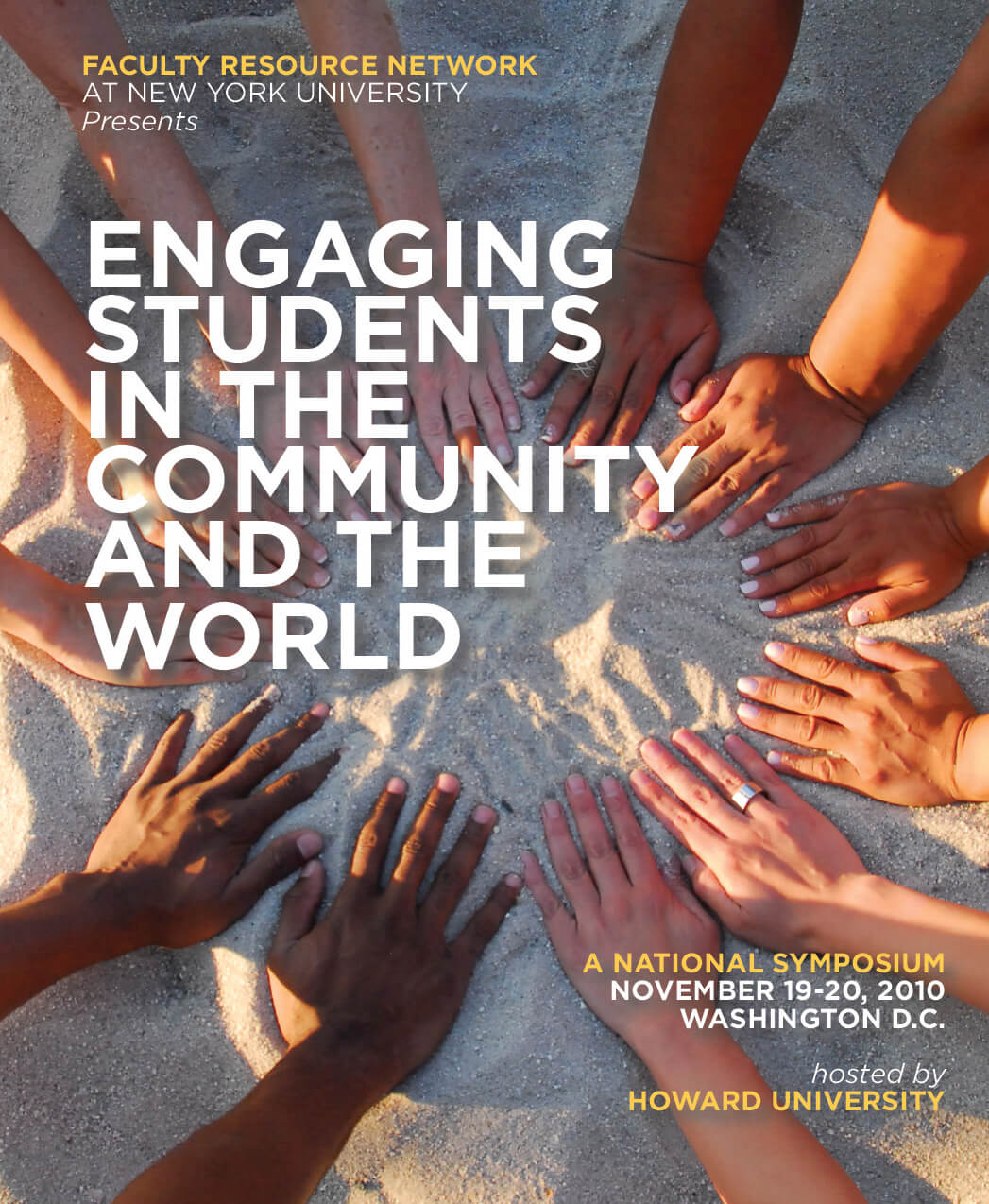Howard University
Washington, D.C.
Symposium Overview
In his classic study of College: The Undergraduate Experience in America (1987), Ernest Boyer concluded that colleges in the U.S. had lost sight of the moral and civic purpose of education. Through the years, others have acknowledged (and some have bemoaned) the trends cited by Boyer: confusion about mission, obsession with vocationalism, faculty who focus exclusively on disciplinary expertise and technical skills, a rift between academic and student affairs divisions, the widening gap between colleges … Show more
In his classic study of College: The Undergraduate Experience in America (1987), Ernest Boyer concluded that colleges in the U.S. had lost sight of the moral and civic purpose of education. Through the years, others have acknowledged (and some have bemoaned) the trends cited by Boyer: confusion about mission, obsession with vocationalism, faculty who focus exclusively on disciplinary expertise and technical skills, a rift between academic and student affairs divisions, the widening gap between colleges and universities and the larger world. Recently, however, new opportunities for civic education have presented themselves. The financial meltdown and the election of the first African-American president in late 2008 have captured the attention of college students nationwide. Moreover, some faculty and staff at our colleges have begun to devise ways of tapping this new student awareness (and their impulse toward volunteerism) so as to engage students in the community and the world.
In November 2010 faculty members and other representatives of Faculty Resource Network institutions addressed these questions and issues during a national symposium on “Engaging Students in the Community and the World,” hosted by Howard University in Washington, D.C.
The 2010 National Symposium examined how colleges and universities can effectively reclaim their vital role as educators of individuals and citizens who are knowledgeable, civically engaged, and morally and socially responsible for others—in the community and across the world.

Spring 2011 Journal
Presentations
Presentations
Xu Zhang, Farmingdale State College
Richard Vogel, Farmingdale State College
Glen Hinckley, Farmingdale State College
Jean Coppola, Pace University
Lin Drury, Pace University
Barbara A. Thomas, Westchester Community College
Sharon Stahl Wexler, Pace University
Jon A. Yasin, Bergen Community College
Audrey Wolfson Latourette, Richard Stockton College of New Jersey
Jennifer Barr, Richard Stockton College of New Jersey
Cindy Mercer, Marymount Manhattan College
Rebecca Mushtare, Marymount Manhattan College
Anthony Naaeke, Marymount Manhattan College
Audrey Tannen, EIS Housing Resource Center
Onllwyn Cavan Dixon, University of San Francisco
Susan Roberta Katz, University of San Francisco
Juliet Schiller, University of San Francisco
Rita Mitchell, Huston-Tillotson University
Andrea Montgomery, Tougaloo College
Ellen S. Silber, Fordham University Graduate School of Social Service
Cynthia S. Wiseman, Borough of Manhattan Community College
Holly Messittn, Borough of Manhattan Community College
Thelma Baxter, Manhattan College
Joan Tropnas, St. John’s University
Nancy Philip, In-Tech Academy
Sharon Ann Musher, Richard Stockton College of New Jersey
Richard Vogel, Farmingdale State College
Cynthia S. Wiseman, Borough of Manhattan Community College
Holly Messittn, Borough of Manhattan Community College
Nicola Davis Bivens, Johnson C. Smith University
Anita Bledsoe-Gardner, Johnson C. Smith University
Thomas B. Priest, Johnson C. Smith University
Deborah Brown Quick, Johnson C. Smith University
James P. Lawler, Pace University
Jean Coppola, Pace University
Pauline Mosley, Pace University
Lin Drury, Pace University
Barbara A. Thomas, Westchester Community College
Sharon Stahl Wexler, Pace University
Vialla Hartfield-Méndez, Emory University
Orla LoPiccolo, Farmingdale State College
Evelyn Wortsman Deluty, Nassau Community College

